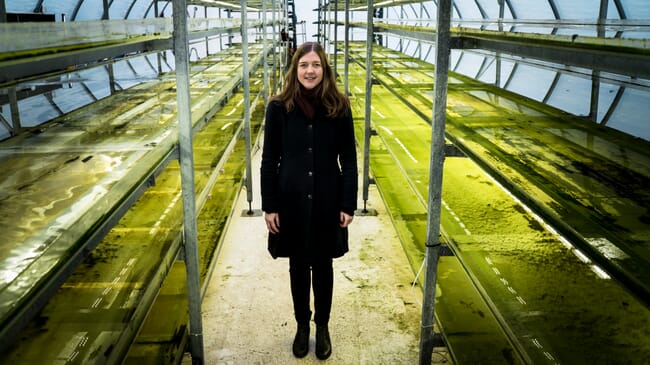Aqua-Spark, the first investment fund focused on sustainable aquaculture, is a primary investor in Swedish Algae Factory's latest round of funding. The Gothenburg-based firm extracts a unique nanoporous silica material from diatoms, a unicellular microscopic algae. The extract has exceptional light-altering properties as well as the ability to absorb or release particles depending on its surrounding environment.

Branded Algica, the material is in demand across a range of industries because it can replace harmful and/or less efficient chemical substances. Uses include improving the efficiency of solar panels, as well as moisturisation, cleansing and ultraviolet light protection in personal care products.
Swedish Algae Factory has already developed the first economically viable facility to grow high-value algae on RAS effluents. Increasing demand for seafood, diminishing freshwater availability, a push for local production, and other factors are driving the growing land-based aquaculture trend. While RAS facilities use less water than any other type of aquaculture, they have to discharge water each day. Even after filtering out solid waste, high concentrations of nitrogen and phosphorus remain, which are detrimental to local environments in high concentrations.
Swedish Algae Factory offers an affordable, sustainable solution for farmers. Through its circular model, the algae cleans wastewater, absorbs carbon dioxide, and also creates nutrient-rich organic biomass that can be used for fish feed or fertiliser.
Sofie Allert, CEO and co-founder of Swedish Algae Factory, explains: “We are really excited that with this injection, we’ll be able to increase production and meet the growing demand for Algica in the personal care and solar energy industries. We are also very happy to bring Aqua-Spark on board, a strong investor with great expertise from the aquaculture sector.”
Mike Velings and Amy Novogratz, co-founders of Aqua-Spark, add: “Swedish Algae Factory’s implementation of the circular economy impressed us from the start. By upcycling wastewater into high-value products for the solar and cosmetic industries, the brand is solving a major issue for land-based aquaculture and sustaining a separate, diversified business model. Their 30,000-foot approach to aquaculture is a great fit for our industry vision and portfolio.”
To date, Aqua-Spark has now invested in 19 complementary companies, technologies, and inputs that are working toward the sustainable production of aquatic life.


